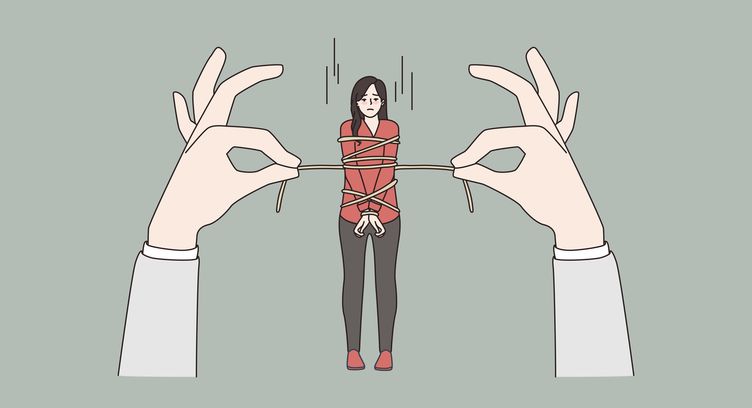
In gambling, there are only two categories of people: Winners and Losers. Switching from one category to the other is always just a game away. And the only way to be a winner as often and as long as possible is to categorically avoid the following mistakes. You won’t be subscribing to any guarantees of permanent victories. But you increase your chances of winning on balance. Taking part is easy, losing is even easier. In any form of gambling, you have to avoid mistakes as much as possible.
1. Play “somewhere “
There are a lot of opportunities for gambling, both online and offline. However, only some of them are suitable. First of all, because of the legality. Anyone who wants to offer gambling in Germany must have a license from the Federal Republic or at least the EU – period. Anything else is illegal gambling, in which participants are also liable to prosecution. And on the other hand, because of the chances of winning. Let’s take the best online casinos. They got their title. They are not only licensed but also because the random number generators there are monitored because they have been certified by third parties (and can prove this) and provide information about gambling addiction. So, there you have proven realistic chances of winning and not just those that run under “vanishingly small”. And only in such establishments – again, both online and offline – should you gamble for something as valuable as your hard-earned money.
2. Put all your eggs in one basket

This is the most important one, the golden rule, and you should follow it in any gambling game really: Never bet all your money or a large part of it on a single bet, card, number or the like. Even if it’s a very simple yes/no scheme, according to the rules of probability, you only have a 50% chance of winning. And depending on the game, complexity, etc., it is even much lower. In gambling, it is true that “nothing ventured, nothing gained” applies. But that does not extend to senseless daring. Gambling has little to do with luck, but a lot to do with cool calculation.
3. Not being in top shape
Gambling combines several important elements. Mathematics is just as much a part of it as logical thinking, and risk analysis. The problem is that all these points can be clouded. Alcohol, bad moods (though also excessively good ones), drugs, grief. These are all things that sometimes dramatically reduce one’s ability to play. Simple example: A person who has a few too many drinks while gambling will not only have to deal with a hangover the next day. He directly increases his willingness to take risks, while at the same time his judgment becomes clouded, his self-assessment increases and his general overview of the situation decreases. And when that happens, so you’re not fully on board (even if you think you’re in top shape), you lose. In addition, the danger of becoming defiant increases (see 5).
4. Start without knowledge
Especially when it comes to slot machines, the appeal is pretty great: put a few coins in the slot and press the flashing buttons. It can’t be that hard. Yes, it is. Any game of chance, even the ones that seem simple, requires a certain basic knowledge to play – otherwise, you might as well just stick your money right in the croupier’s breast pocket and walk away. This is even more true in places where no one will notice that you’re a total beginner. Say, online. If you want to play (for money) here, you should not only have read up extensively on the rules of this one game but also already have a few practice rounds without real money under your belt. After all, you wouldn’t think that someone who has never sat on a bike would be able to ride in the Tour de France.
5. Become defiant

You can master the rules, be in good shape for the day – and still have a bad day and lose. Maybe the opponents are simply better, maybe your skills don’t work on this day as you thought they would – there are plenty of reasons. But the completely wrong response to this would be to continue playing according to the motto “now more than ever”. That would also violate the second rule. Defiance automatically makes you more willing to take risks and chase after your losses. In most cases without success, but with many more losses. The only response you should have to a bad day is the “rule of five”: if you lose in five consecutive games, no matter how close and no matter how little, let it go for today and come back another day.
6. Have no frame
Gambling addictions are all the same. And they all have a common core: the loss of control over one’s actions. And one thing favours this loss of control in every case, even in stable personalities: One has not set oneself a limit. To put it bluntly, you should set yourself a money limit for every gambling session. Once you’ve gambled it away, you stop. To ensure this, you only take the amount of money you need with you or write down the amount on a visible piece of paper on your computer screen. This is primarily a control mechanism to prevent uncontrolled gambling. At the same time, however, it is also a small psychological stumbling block that you set for yourself. Without a limit, your conscience will continue to play happily. With a limit, however, you have to actively switch it off to continue playing.
7. Get distracted
Online poker is being played in front of you, the TV flickers in the background, and you glance at your cell phone now and then. If you imagine this, it’s clear that you’re automatically putting yourself in the red. Because every distraction ensures that you no longer concentrate on the game with the necessary one hundred per cent. What’s more, the game becomes a casual activity, and our focus in terms of risk management is no longer fully on the matter at hand. As simple as it sounds, when you’re playing, your eyes, ears and mind should be on the game.


